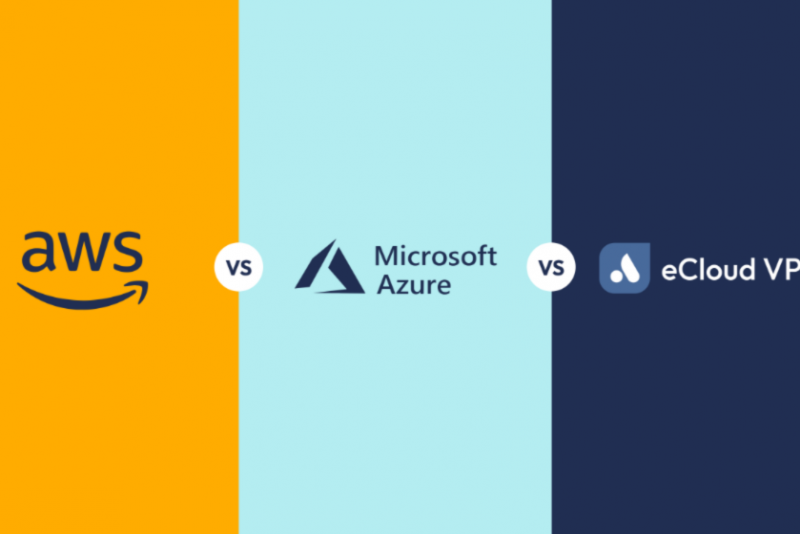7 factors SMBs should consider before choosing a cloud platform
There are many cloud platforms available in the market, but deciding which one is right for your organisation depends on a lot of factors, including your technical, business, commercial and security requirements of your business. In this blog post, Anthony Holland, ANS Head of Pre-Sales, shares 7 questions for small and mid sized businesses (SMBs) to consider before choosing a cloud platform. Before diving in, let’s recap the different cloud solutions available to you.
Public Cloud: Owned by providers such as Amazon or Microsoft, AWS and Azure public cloud platforms operate on a large scale and have advanced features, with a higher degree of flexibility and scalability.
Private Cloud: This provides your business with dedicated cloud computing resources that are not shared with anyone else – just your own applications and services. This can be a more expensive option than the public cloud approach, but allows you to build it where you want and how you want it, allowing you to consider things like UK data sovereignty, the equipment you use etc.
ANS’ very own eCloud VPC (Virtual Private Cloud): Designed to take the best of public cloud and tailor it to the needs of SMBs, eCloud VPC allows you to run Virtual Machines [VMs] on enterprise-grade hardware owned by ANS. They are simple, scaled-down versions of public cloud with simpler functionality, faster deployment, and a lower cost to getting started.
Now, let’s take a look at the crucial considerations to aid your cloud platform selection.
1) What do you truly mean by cloud computing?
Cloud computing means different things to different people within a business – let alone for different businesses. First and foremost, understand what you are trying to achieve by migrating to the cloud. Are you looking for the convenience of an OpEx payment model?
Or do you want to use modern development technologies like Containerisation and Artificial Intelligence (AI) to host your applications and make use of the data? The platform you choose will depend on these considerations.
For instance, if convenience is key, then a Virtual Private Cloud (VPC) might offer a more cost-effective solution than AWS or Azure. But it provides fewer power user and developer focused features, so if you want to build advanced environments, public cloud might be a better option for you. Whereas if you want to keep things simple, running inside Virtual Machines, eCloud VPC might be a more cost effective approach.
2) Assess your technology stack and its complexity
Before deciding on the cloud platform, it’s essential to assess the complexity of your existing technology stack. If you’ve got traditional applications or legacy servers running older operating systems like Linux CentOS 7, migrating to the public cloud will likely need you to think about rearchitecting your applications.
In such cases, a VPC could offer a smoother, simpler transition. For instance, you can move your applications from dedicated servers to eCloud Virtual Private Cloud (VPC) without changing the underlying architecture. This provides a feel of public cloud without the massive efforts and time required for rearchitecting.
Think of VPC as your gateway to the cloud. It offers a stepping stone to modernise your infrastructure at a fraction of the cost and complexity associated with AWS or Azure.
On the other hand, for SMBs embracing modern technologies such as Containers, AI, Database as a Service, or Serverless to host their applications, public cloud will be the obvious solution.
Additionally, time constraints may also dictate your migration strategy. If your existing solution contracts such as warranties, Managed Services or extended support arrangements are nearing expiration, then you may have little time to rearchitect your services to allow a move to the public cloud. The urgency of your business decision to transition to cloud will impact the best platform suited to your needs.
It may be the case that you will need to migrate to eCloud VPC to overcome the short term challenges posed by your underlying hardware, whilst you prepare for a long term move to public cloud in the future.
3) Where is your data hosted?
Check what platform your data is going to sit on and where that platform is located. This is more pertinent when you are going down the VPC or private cloud route. Are you getting enterprise-grade hardware from trusted providers like Cisco, VMware and HPE? If not, consider whether there is a chance of your hardware being exposed to security vulnerabilities.
Enterprise-grade hardware doesn’t necessarily mean it’s expensive. It assures you that you are in good hands and that the platform is as well maintained and protected as possible. For instance, ANS’ eCloud VPC is built on hardware from VMWare, Cisco and HPE, offering superior performance, availability and security.
4) Is the cloud platform secure?
Security is non-negotiable, especially for providers operating outside of the public cloud space. Not all providers host their data in the UK, potentially exposing you to non-compliance with regulatory requirements if your industry demands it – just consider whether your provider puts you on the right side of GDPR legistation for example.
With eCloud VPC, all the data is securely hosted in our UK-based data centres, certified to ISO 27001 and can be used to meet PCI-DSS standards. It’s all owned and managed by security-cleared ANS staff. You’re in good company as your data sits in a facility that hosts the Ministry of Defence (MoD) and the Police, ensuring exceptional levels of protection.
We also need to think of the security measures offered by the hardware provider. Platforms by market-leading providers like Cisco, HPE, and VMWare offer robust security and swift vulnerability patching, protecting you from risks.
5) How much scalability do you need?
Typically, all cloud platforms offer a certain degree of flexibility. If you’re purely gearing towards scalability as the main business or technical requirement, public cloud solution might be a good choice.
If you need scalability and security but think public cloud is overkill, our eCloud VPC would work best for you. With all cloud platforms, consider your usage patterns and services to avoid unnecessary costs.
6) Is it simple to manage cloud platform?
If you are an SMB with a small in-house IT team, it becomes critical that the platform you choose is simple to manage and helps solve your problems without worrying about the underlying equipment.
That’s exactly what eCloud VPC does. It’s really easy to manage compared to other cloud provider platforms. It is ideal for SMBs with limited tech resources as you don’t need a huge amount of expertise to manage the platform; it is intuitive, and you can adjust resources instantly with a few clicks.
While it’s simple to manage on your own, we can provide a managed cloud service for an extra layer of support. We’ll help free up your team’s time and let them focus on the things that impact your business the most. Our managed services team provides 24/7/365 coverage to your cloud platform, so you are always online.
7) What are the carbon credentials of the cloud provider?
The carbon credentials of a cloud provider are increasingly becoming a priority for businesses in the UK. Many companies are looking to reduce their carbon footprint to show their responsibility towards the environment and meet regulatory criteria. So, if this is one of your priorities, you should carefully partner with a vendor that aligns with your sustainability standards.
ANS is one of the very few cloud providers in the UK that is 100% carbon neutral, so you can be confident that you’re with a company that shares your ESG values.
Selecting the right cloud platform is an important decision that can significantly impact your business’s success and growth. By carefully considering factors such as performance, cost, scalability, security, compliance, and vendor support, you can make an informed choice that aligns with your organization’s needs and goal.
In summary, whether you choose public cloud, private cloud or VPC, working with an accredited partner who understands your business needs and deploys the right cloud solution is critical. Hundreds of leading businesses across industries have trusted ANS with their cloud deployments, so you can be sure you’re in safe hands.
If you are still unsure which cloud platform to choose, we can help you decide, starting with a Cloud Navigator Assessment. We’ll evaluate ‘where you are now’ and ‘where you want to be’ to deliver your cloud objectives based on your technical requirements, budget and business needs. Get in touch with us and our cloud experts will help you make the right choice.





